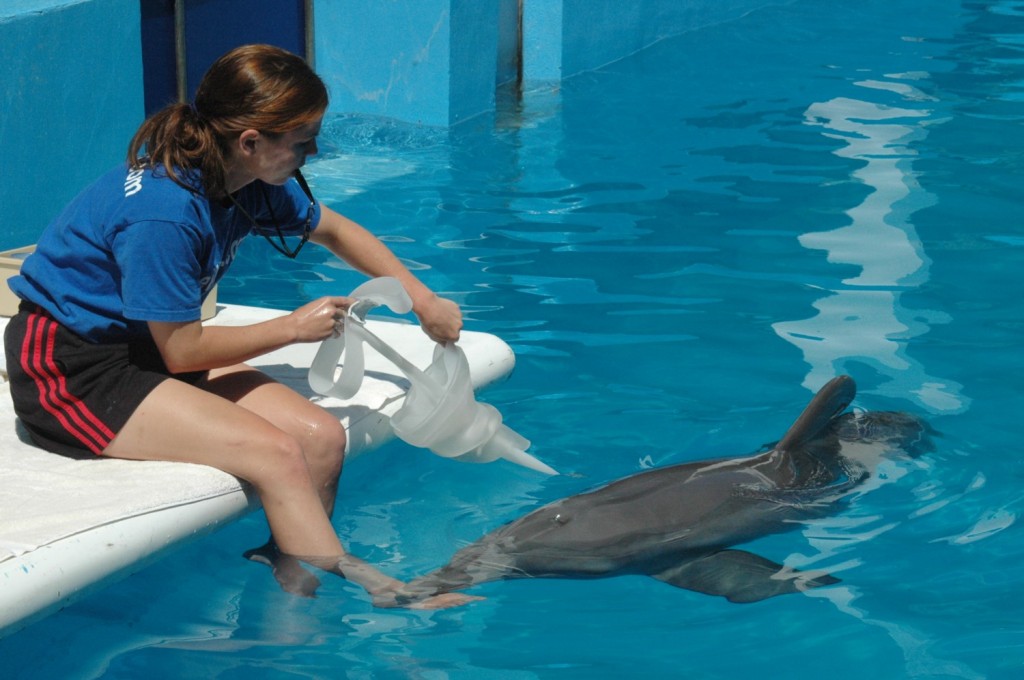
The Responsible Travel industry is turning its sights on animal welfare.
This issue will figure into the keynote address by Dr. Martha Honey, CREST Co-Director, at TBEX North America, which will be held September 11 – 13, 2014, in Cancun, Mexico.
In advance of her speech she has been asked to comment on an ongoing debate about captive dolphin tours in Cancun. Here is how CREST views the issue:
“Respecting animal welfare is an essential component of responsible travel. CREST believes that when at all possible, wildlife should live in their natural habitats.”
If wild animals are held in captivity, they should be guaranteed, at minimum, the following ‘Five Freedoms’:
Sufficient and good quality food and water
A suitable living environment
An opportunity to exhibit natural behaviors
Protection from fear and distress
Good health
(Check out Born Free UK’s Guide to the 5 Freedoms, which discusses the Five Freedoms in detail in the context of captive wild animals.)
Dolphins are socially complex and self-aware creatures, and we agree with World Animal Protection in that these animals “deserve to live a life free from captivity, where they can properly fulfill their social and behavioral needs.” A tank simply cannot provide them with the space, environment, and social freedom they need to thrive as they would in the wild.
The tour operator Intrepid Travel, a highly respected leader in responsible travel, has set a guideline that it is best to view wildlife where it belongs, but if a zoo or aquarium is ever visited, a visitor should make sure the facility adheres to the World Association of Zoos and Aquariums’ Code of Ethics before entering.
Also, interactions with wild animals should never involve physical contact with people, feeding, or other actions that disturb or alter their natural behavior. These actions often cause extreme distress for the animal and are health risks for both parties.
On the issue of captive marine animals, President Mark Spalding says, “We have admirable facilities that rescue and when possible rehabilitate and release marine mammals, sea birds and sea turtles. Some of these allow the public to visit and volunteer. And, many have advanced our knowledge of marine wildlife through research during their recovery.
“But like hospitals for humans, this is not where we want wild animals to spend their entire lives. We prefer to see them in the wild where they thrive.”
CREST works frequently in close collaboration and partnership with The Ocean Foundation.
For more information about CREST, visit www.responsibletravel.org. Connect with CREST on Twitter and Facebook.
For more travel features, visit:
www.examiner.com/eclectic-travel-in-national/karen-rubin
www.examiner.com/international-travel-in-national/karen-rubin
travelwritersmagazine.com/TravelFeaturesSyndicate
goingplacesnearandfar.wordpress.com
moralcompasstravel.info
‘Like’ us on facebook.com/NewsPhotoFeatures
Twitter: @TravelFeatures